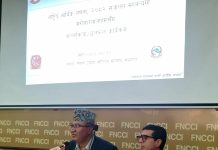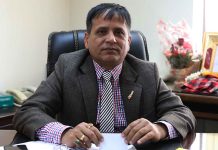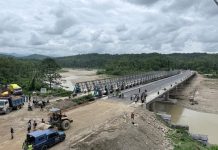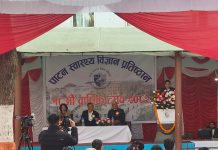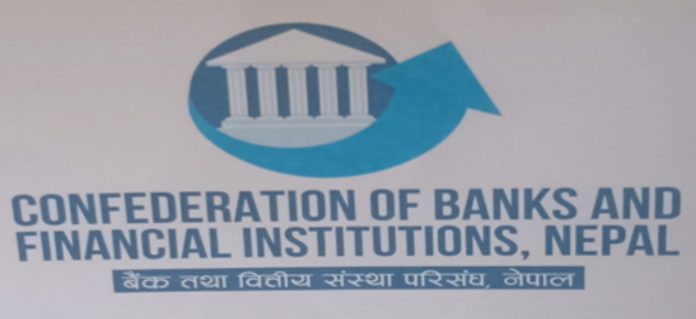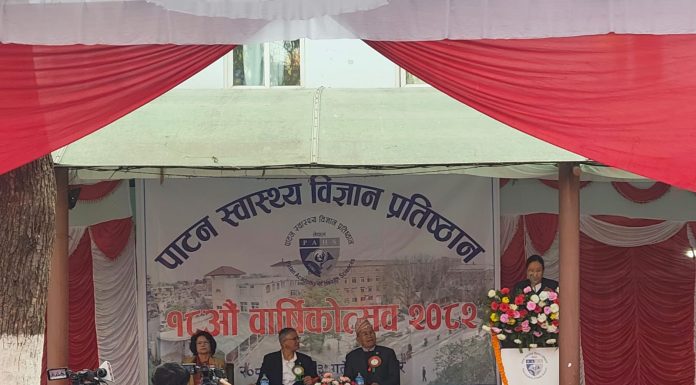Kathmandu, 24 April.
Confederation of Banks and Financial Institutions Nepal (CBFIN) has suggested the government to apply the anti-money laundering (AML) measures to women depositing Rs. 1.5 million to revive the economy affected by the COVID-19.
“The government should not raise the issue of AML, ask any sources of income/KYC requirement/and tax clearance if any women are depositing up-to 1.5 million rupees to banks and financial institutions,” it said on Tuesday.
Such sort of fears have already discouraged them to deposit in financial institutions. It helps to mobilize hidden financial resources scattered across the country, said CBFIN.
It also suggested to remove the approval process from the Nepal Rastra Bank and Department of Industry for the foreign direct investment up to US dollars 5 million if it is brought to Nepal through banking channel.
However, while repatriating profits and other funds, banks should keep record and inform to the NRB and DOI, and also give approval.
CBFIN is an organization of chairmen and directors of commercial banks, development banks and finance companies.
The organization said in a statement that the chairmen of various financial institutions have suggested that all private sector organizations and the financial institutions should work jointly with the government and support to revive the various sectors of the economy for survival.
CBFIN suggestions:
Financial sector relief measures
1. Banks and financial institutions to make available of ‘interest-subsidy’ at 10 per cent to all the regular borrowers for all sorts of loans who pay installments till Baishak, 2077.
2. One percent interest rate to be reduced from Baishak by Commercial Banks for up-to 10 million rupees loans. Similarly, development banks to reduce one percent interest rate for up to 4 million loans giving to and finance companies to reduce interest rate at one per cent to be provided for up to 2 million rupees in a bid to revive economic activities and sustain in the long run.
3. Regular expenditures/operational expenses of the financial institutions to be reduced ‘drastically’ in joint coordination with related institutions. And advantage to be passed on to the customers for their relief.
4. A Study Task force to be constituted to study the impact of Covid-19 and recommend way forward by developing short term, medium term and long term strategy to revive the economy and submit to the Government/Central Bank. The study team will identify existing bottlenecks on various sectors of economy, future challenges in the financial sector and workable recommendations within 2 weeks.
Suggestions to the Government
1. The government should not raise the issue of AML, ask any sources of income/KYC requirement/and tax clearance if any women from all walks of life are depositing up-to 1.5 million rupees to banks and financial institutions. Such sort of fears have already discouraged them to deposit in financial institutions. It helps to mobilize hidden financial resources scattered across the country.
2. If any NRN/foreigner as individual or entity, invest up-to half a million dollars bringing from abroad through Merchant Banks/Capital Companies and invest in stock market, they should be allowed. Their lock-in period for 2-3 years can be discussed.
3. If the people bring up to 5 million dollars as FDI into Nepal through banking system, the approval process from NRB and DoI should be avoided, and the government should facilitate for this. However, while repatriating profits and other funds, banks should keep record and inform to the NRB and DOI, and also give approval.
4. If NRNs could bring one million dollars in Nepal for investment, Nepal government should not ask for a source.
5. If any Nepali people invest in agriculture and other productive sectors, the government should not ask for a source.



